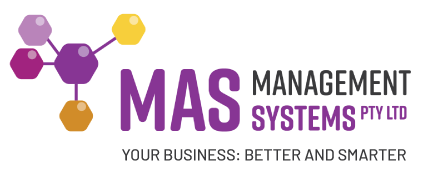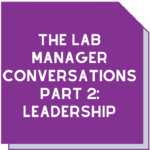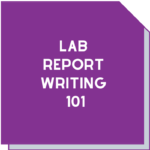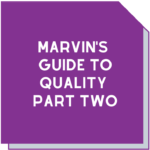YOUR LAB’S REPORT CARD – ARE YOU ‘FUTURE PROOF’?
written by Maree Stuart
It’s a new school term and that means it won’t be long before students receive their next report card. If your lab were to receive a report card, how do you think you’d do?
Hopefully it won’t look like this!
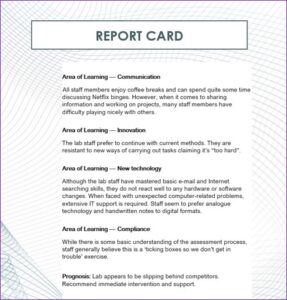
When it comes to labs, you already know it’s important to stay on top of industry changes. There could also be changes to your clients and your relationship and contracts your lab has with them.
Sometimes, you might be thinking about your personal future and succession planning. Things like opportunities to sell your lab might be on your radar, or they can come out of the blue. What can you do to accommodate these future changes?
You don’t need Madam Zelda and her crystal ball to know that technology is increasing at an astonishing rate. And the little thing called the pandemic has certainly meant changes in terms of the business landscape.
The Human Genome Project took 13 years and billions of dollars to complete. And now, next-generation sequencing technology is readily available in many routine testing labs and the technology can complete sequencing in hours.
So, what do you need to consider to ‘future proof’ your lab?
Dealing with technological changes
“Heraclitus, I believe, says that all things pass and nothing stays, and comparing existing things to the flow of a river, he says you could not step twice into the same river.” – Plato
In STEM, one of the biggest constants is change. As the Human Genome Project shows, those changes can be very large and significant, or they can be so incremental we barely notice them. Our technological infrastructure is constantly evolving and it’s easy to get left behind.
How can you keep abreast of these changes and technology? Joining organisations such as professional associations, or catching the latest You-tube video from IFL Science are some options. But how do you consolidate this intelligence into a meaningful plan?
Well, there are times that we should be looking at technological changes in our business processes. Developing your organisation’s strategic plan is one such occasion. An annual review allows you to evaluate if there have been any changes that weren’t captured in that original plan. Management Reviews present a useful ‘Quality’ event that you can tie this task of development or review of your strategic plan to.
We’ve written previously about Management Review and you don’t need to confine yourself to the list of inputs in ISO 17025 and ISO 15189. After all, this is your meeting. A scan of the external factors affecting your business has a direct impact on Quality and your ability to meet customers and other stakeholder needs.
Managing your data
Being able to harness the data coming into and out of your lab, making it accessible and keeping it secure is critical to your business.
One option is an informatics roadmap. This strategic activity identifies the gaps between business goals, your current data ecosystem, and future plans.
 This needn’t be overly prescriptive but should provide guideposts to show how your IT system will keep pace with business growth.
This needn’t be overly prescriptive but should provide guideposts to show how your IT system will keep pace with business growth.
Your lab’s priority with managing data should always be maintaining data integrity and security.
For example, you may have cloud enabled applications that allow staff and clients to access data and analytics from multiple locations and devices. This has many benefits including cost savings, flexibility and speedy collaboration. However, you must be able to demonstrate that you’re keeping that data secure.
And not just to your clients – your accreditation or certification provider will want to see this too.
A related issue is security of your reports to clients. A recent report by NATA, JAS-ANZ and GS1 identified that while such documents can be fraudulently altered, even legitimate documents can be misused. Work is underway to address this issue through development of a framework that uses an approach involving implementation of global data standards. It’s an evolving area and one of the many elements of technology and data management that labs must now consider.
Managing client changes
The client-lab relationship can undergo change which might go unnoticed or for which labs are unprepared. Labs often have regular clients, including when the lab is in-house and performing a QC function to production.
Changes such as the key people working at your client’s business can have an impact on your lab. Perhaps they don’t know you and what you do in your lab, or the extent of your lab’s capabilities. The scope of work performed by the client might have changed over time. Plus your new contact might not appreciate that you aren’t aware of these changes.
Of course, there might be things like restructuring and financial difficulties that you don’t know about, but which have an impact on how you deliver the lab’s services to your client.
Developing a partnership
 The best solution lies in some of the requirements contained in standards such as ISO 9001, ISO 17025 and ISO 15189.
The best solution lies in some of the requirements contained in standards such as ISO 9001, ISO 17025 and ISO 15189.
You need to be clear on the needs and expectations of both parties in the customer-supplier relationship. This is a fundamental principle of total quality management and occurs when that relationship is open and acts as a partnership.
Those sections on understanding the needs and expectations of interested parties (in ISO 9001), requirements for services and reviewing these requests, and monitoring customer satisfaction and seeking feedback, (as described in all the Standards) are the pillars of guiding the lab through these challenges.
Be proactive in communicating with clients and seeking to fully understand their needs. These are crucial activities to help manage changes with clients.
Have regular, meaningful interactions through customer surveys and discussions under the guise of contract and request reviews. These are excellent ways of managing client relationships.
Put it in writing
Did you know that some aspects of this relationship can be written down simply in an agreement? It’s a great way of cementing the relationship and putting in place mechanisms for at least a periodic review of where everything stands between the lab and the client.
And if you’re nervous about how to get these agreements in place, our friends at Lab Law can help produce something that is fit for purpose and often for less than $1,500!
Do you have a report card like the one above? Why not strive to make the changes you need to become a star pupil and future-proof your lab?
Contact Maree (0411 540 709) or Diane (0402 012 781) or send us an email at info@masmanagementsystems.com.au
Remember, you don’t have to do this alone!
Download the article Are you future proof?
